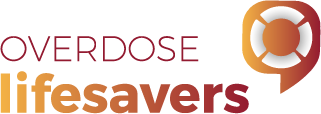
Lewis overdoses at his parents’ house
Preferred Name: Lewis
Gender: Male
Age: Mid 40s
Who is Lewis?
Lewis lives alone in an inner-northern Melbourne suburb. He describes his ethnic background as ‘Australian’: like his mother, Lewis was born in Australia, while his father was born in the UK. Lewis’ primary source of income is a Commonwealth Newstart Allowance*. He has one child. Lewis had been offered take-home naloxone in the past but didn’t think it was for him because his heroin use is a ‘solitary’ activity.
Brief Outline:
Lewis describes an occasion when he overdosed in his parents’ bathroom after returning from a heavy drinking session at a pub. His brother became worried when he had been in the bathroom too long, and alerted his parents, who yelled and frantically knocked on the locked door. With all the noise, Lewis regained consciousness to find he had injured himself. Lewis says he hasn’t experienced an overdose now for 10 years, and that his motivation to be a better father, and to be present for his son, has made him more responsible in his heroin use.
(Note: strong language)
I must have overdosed as I just remember that there was very frantic knocking on the door and screaming. My younger brother had gotten really worried and called my parents, and I came to to find I’d smashed the toilet seat somehow and I’d bashed my head.
My mum and dad were hammering on the door and I was saying ‘no, everything’s good; I’ll be out in a minute’. No-one was buying that and eventually I opened the door. I was alive so no-one called an ambulance. Everyone knew what was going on, but I remember being angry at my younger brother for calling my mum and dad, which was unfair on him.
I used to take heroin with other people, but that was a long time ago. It’s a very solitary activity for me these days, only because they’ve all died. It’s been about 15 years since somebody’s died in front of me.
I remember being with a group when we realised a woman with us had been unconscious for a while. After doing heroin, people can go on the nod and be happily unconscious, so you don’t always think much of it. We tried to wake her up but couldn’t. It’s horrible to think about. I don’t think anyone could do proper CPR or anything like that, so we called an ambulance, but she was dead.
It’s been 10 years since I’ve overdone it and overdosed like that time in the bathroom. I think I’m more responsible in my heroin use, largely because I have a young son, and I’m present in his life and I want to be present in his life.
Reflecting on having previously declined the offer of take-home naloxone due to his solo injecting, Lewis said ‘it would take a certain degree of acceptance’ for family members to be willing to learn how to respond to an overdose with naloxone. As Lewis put it, ‘I’m sure if I mentioned [take-home naloxone] to my father, he’d be like ‘well how about you just don’t fucking use heroin’ and that would be the end of that. But I understand […] that there are different degrees of acceptance [of heroin consumption in families].’
I remembered I had some heroin, and went into the bathroom, sat on the toilet and set out everything on the edge of the shower tub. The bathroom had a lock on the door, so I had some privacy for injecting, which I’d done there lots of times before.
I must have overdosed as I just remember that there was very frantic knocking on the door and screaming. My younger brother had gotten really worried and called my parents, and I came to to find I’d smashed the toilet seat somehow and I’d bashed my head.
My mum and dad were hammering on the door and I was saying ‘no, everything’s good; I’ll be out in a minute’. No-one was buying that and eventually I opened the door. I was alive so no-one called an ambulance. Everyone knew what was going on, but I remember being angry at my younger brother for calling my mum and dad, which was unfair on him.
I used to take heroin with other people, but that was a long time ago. It’s a very solitary activity for me these days, only because they’ve all died. It’s been about 15 years since somebody’s died in front of me.
I remember being with a group when we realised a woman with us had been unconscious for a while. After doing heroin, people can go on the nod and be happily unconscious, so you don’t always think much of it. We tried to wake her up but couldn’t. It’s horrible to think about. I don’t think anyone could do proper CPR or anything like that, so we called an ambulance, but she was dead.
It’s been 10 years since I’ve overdone it and overdosed like that time in the bathroom. I think I’m more responsible in my heroin use, largely because I have a young son, and I’m present in his life and I want to be present in his life.
Lewis (M, mid 40s, Vic, non-prescribed opioids) argues that decriminalising drug consumption may reduce overdose deaths.
Decriminalisation. From what I gather in Portugal, is that it’s been tremendously positive in terms of the way people use drugs, and resulted in lower drug taking and much lower rates of overdose […] Anything that destigmatises it and actually presents people with real information. Obviously it’s going to be a different landscape if it’s treated as a health problem [rather] than a criminal problem […] It just becomes something that you don’t have to hide […] I just think if it was destigmatised, it would make room for people to be much more honest and transparent and accurate in terms of talking about it.
Likewise, Lewis (M, mid 40s, Vic, non-prescribed opioids) recounts overdosing after consuming heroin and alcohol. In order to have some privacy, he too consumed heroin in a bathroom.
This was actually at my parents’ house, which I stayed at occasionally. I can very vividly remember the bathroom, and I had a little ritual in terms of how I used [heroin] in that house. The bathroom had a lock on the door, so that’s good, I had privacy to use […] It’s sort of rare for me to have had heroin on me and, you know, buy more than what I was going to use at that exact moment, but at that time I did have more. I’d been drinking – I’d been at a pub and drunk quite a lot of alcohol – and a couple of the other times I’ve overdosed [it] has involved alcohol [too]. I’m not a big drinker, really. So I’d come home from the pub and remembered I still had heroin. I used to sit on the toilet and there was like a shower which had a little tub in it, so there was the edge of that, and you could sit on the toilet. It was a perfect little tray for spoon and everything. Yeah, I did that successfully many times, but, yeah, on this particular occasion I just remember there was very frantic sort of knocking on the door and screaming. My younger brother was there and obviously had become very worried and called my parents, and, you know, I sort of came to. In that situation I’d smashed the toilet seat somehow and I’d bashed my head and I was covered in blood, there was a bent fit in my arm and my mum and dad were hammering on the door.
A health worker had offered Lewis (M, mid 40s, Vic, non-prescribed opioids) take-home naloxone. He explains that he didn’t take her up on the offer because he primarily consumes heroin alone.
So my explanation to her for why I wouldn’t pursue learning about [take-home naloxone] is that using [heroin] really is exclusively a solitary thing that I do. I understand that’s not safe, but yeah, there’s not going to be anyone there to administer it to me [if I did overdose] and presumably I can’t administer it to myself at that point in time. I guess it’s something useful in case I saw somebody else in that situation.
According to Lewis (M, mid 40s, Vic, non-prescribed opioids), his father wouldn’t be interested in keeping or using take-home naloxone. (Note: strong language)
I guess if you’re in a situation where there are non-using people that are around you and would recognise that situation [overdose], it would take a certain degree of acceptance on their behalf. You know, I’m sure if I mentioned [take-home naloxone] to my father or something, he’d be like, ‘Well how about you just don’t fucking use heroin,’ and that would be the end of that. But I understand […] that there are different degrees of acceptance [of heroin consumption within families…] I wouldn’t ask someone, or my son’s mother, to do [overdose response training because] it’s just a bit of the same: ‘How about you stay off the fucking heroin?’ But yeah, once again, I’m hiding it from her, so she’s the last person who’s going to find me overdosed.

